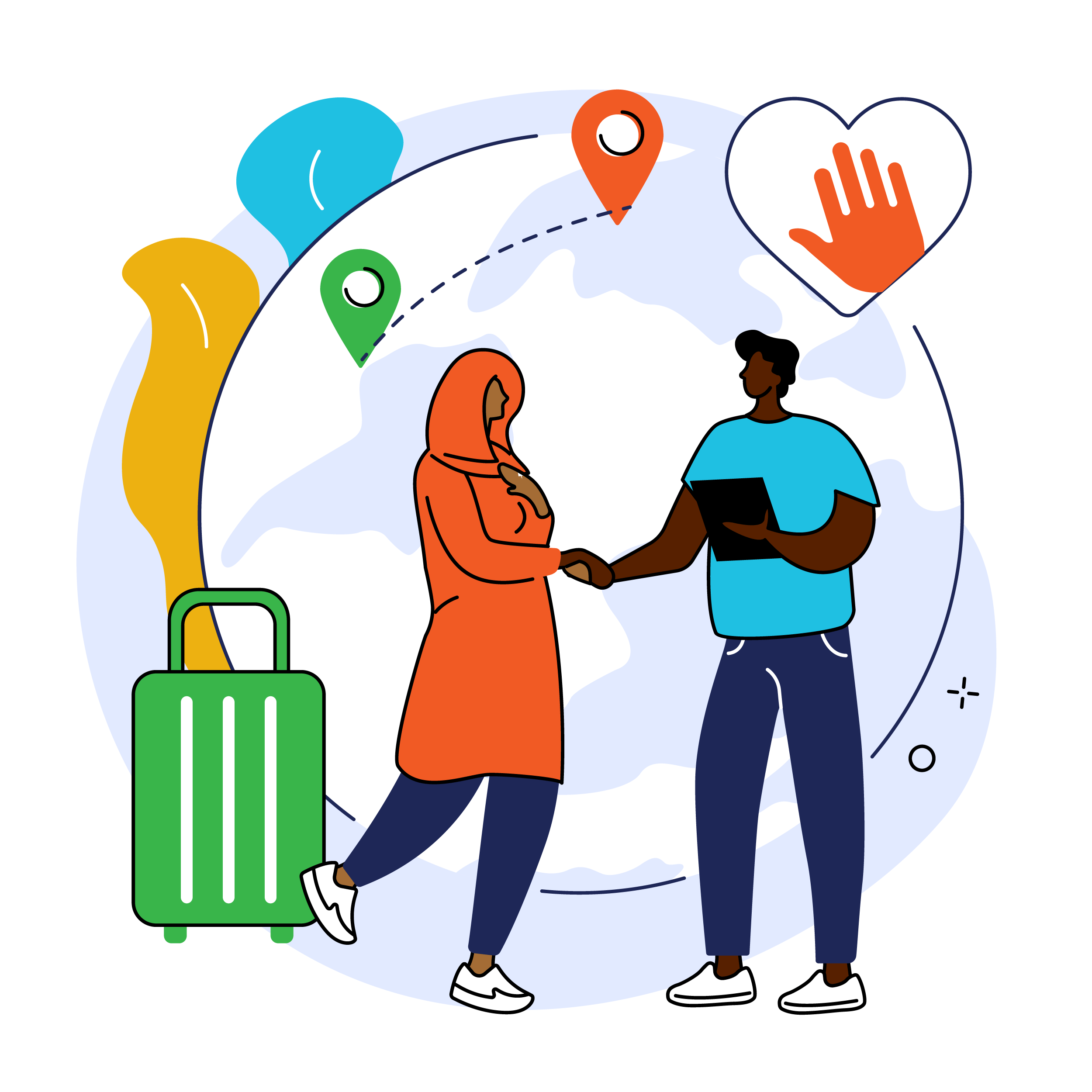Using Interpreters
The majority of newly arrived people from refugee backgrounds do not speak English or do not speak English well, yet research shows that credentialed, professional interpreters are only engaged for a small percentage of consultations in primary care.
Healthcare providers have a professional obligation to understand their patients’ needs and patients have the right to fully understand the information provided by healthcare workers. For people who have low English proficiency, working with a credentialed interpreter is the best way to ensure this.
Confidentiality is part of a credentialed interpreter’s code of ethics, and the engagement of credentialed professional interpreters form part of the Royal Australian College of General Practitioners Standards for General Practice and the Nursing and Midwifery Board of Australia’s Code of Ethics for Nurses in Australia.
For more information about approaches to patient care regarding communication and interpreters please see the Refugee Health Guide.

referral
referral
Medical Practitioner Priority Line for free Interpreting services
Private medical practitioners and their practice staff can access free Interpreting Services to provide Medicare rebatable services to anyone in Australia who is eligible for Medicare. This service is available 24 hours a day, every day of the year.Find out more
referral
Free Interpreting Service for allied health professionals
Some privately employed allied health professionals are eligible to access the Free Interpreting Service (FIS) when delivering their services in a private practice located within approved Local Government Areas to patients who are eligible for a Medicare card.Visit
referral
Fee-for-service interpreters for allied health
Interpreters are not generally funded for allied health services, however hospitals and community health centres receive funding to purchase language services.Find out more
resource
resource
Ethnologue online encyclopaedia of world languages
Find, read about, and research the world's 7,000 known living languages.Visit
resource
Communicating via an interpreter
This information sheet is one of a series produced by the Centre for Culture Ethnicity & Health covering aspects of language services.Visit
resource
Working with Patients when there are language barriers
A guide to accessing and using the Translating and Interpreting Service for primary care health professionals working in private practice.Visit
resource
TIS National services for medical practitioners
Short 3 minute video that explains the interpreter services that are available for medical practitioners and a demonstration on how to use them.Find out more
resource
How to Book an interpreter
The booking guide will provide step-by-step instructions on how to book an interpreter via the pre-booked, video remote and on-site channels in TIS Online.Visit
publication
publication
Interpreter Engagement in General Practice in Australia- Migrant & Refugee Health Partnership (2020)
This report investigates the potential benefits, costs and disincentives involved in engaging interpreters, and the risks of failing to do so, with an emphasis on general practice settings.View Document
publication
Lost in translation: using standardised self-report measures in cross-cultural research
The goal of this resource is to provide guidance regarding the use of standardised self-report measures in research involving people of refugee and migrant backgrounds.View Document
publication
Exploring Barriers and Facilitators to the Use of Qualified Interpreters in Health
The purpose of the paper is to summarise available evidence regarding the use and failure to use qualified interpreters in various health settings and describe the main barriers and facilitators to the use of qualified interpreters in health settings.View Document
publication
Promoting the engagement of interpreters in Victorian health services
Evidence shows that there are many occasions when credentialled interpreters are not engaged even though they should be, creating risks for both clients and health practitioners.View Document
publication
Guide for clinicians working with interpreters in healthcare settings
This Guide focuses specifically on effective communication and working with interpreters and seeks to provide relevant recommended approaches and evidence-based goodpractice points.Visit
